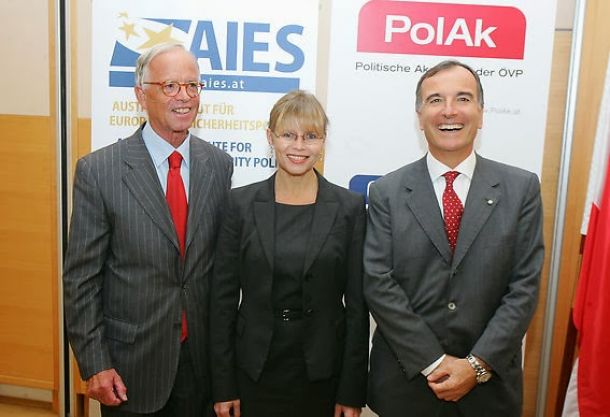SUSCO BUDAPEST 2018: Frattini Key note speaker “Understanding the nexus of climate change and migration”

The 5th East-Central European Conference on Sustainable Development was held on 11 October 2018 at Eiffel Palace, Budapest
It points out the current changing environmental conditions around the globe and highlights the most affected regions, while searching for answers to questions, such as which are the interlinkages between human mobility and climatic factors.
Speech delivered by President Franco Frattini as key note speaker
“Understanding the nexus of climate change and migration”
The migratory phenomenon, which is not only at the forefront of the European agenda but also at that of the International Community, is certainly one of those issues that has many dimensions, because there are many causes that induce or often force millions and millions of people in the world to leave their country to look elsewhere for a better future for themselves and their families.
Certainly, we know the immigration of those who come from African countries, in many cases because they flee from war, from crisis situations, from persecution; in many cases because they simply do not have jobs, they are looking for an opportunity to make money in Europe, and certainly poverty and humanitarian dramas are among the most recurrent causes of mass migration. Another important global theme that has been on the agenda of the United Nations for a long and long time, and on which the international community seeks proposals and solutions – not always with great results – is climate change and, connected to that, the theme of the protection of the environment in which we live.
Surely the great environmental issue, the issue of climate change, beyond the research that science is conducting – and I note that many people talk about it, but few know the subject in detail – has to do with immigration, in the sense that one of the factors that can induce or force women and children to emigrate is an alteration of the ecosystem, an alteration of the earth, of living conditions due to climatic effects, due to pollution or, more generally, to environmental degradation.
A first geographical scenario where this link between environmental degradation and emigration is particularly evident is found in Africa, with increasing desertification. In many Saharan and Sub-Saharan African countries, arid areas and desert areas are expanding; water resources are shrinking and we must imagine in a not distant future that, for example, water and access to drinking water will be one of the reasons for greater conflicts and friction, if not even war, between neighbouring countries that access the same basins for food, for irrigation, in short for life. Consider, for all, the increasingly dramatic situation of the Great Lake Chad, which bathes the coasts of countries that are in one of the arid areas of Saharan Africa most affected by migration problems, by immigration flows from south to north, but also by penetrations of extremely dangerous groups, cells, organizations of Islamic terrorism. And no doubt this situation has, and can always have, greater effects if we consider, for example, the growing exploitation of the Nile, which brings Sudan and Egypt to an ever-stronger contrast on the sustainability of the river exploitation and its consequences.
I remember – from the time when I was the Italian Minister of Foreign Affairs – the terrible drought and famine that struck Kenya between 2008 and 2009, creating flows of millions of environmental refugees fleeing from areas where the desert was advancing, famine and lack of water and food were become total; obviously they burdened on neighbouring countries that had to set up refugee camps destined to host millions of desperate people, not for a few days or for weeks but for long, long time. We are therefore talking of phenomena that link a further migratory pressure to natural facts, linked precisely to environment. And certainly, next to desertification, as mentioned, there is the lack of resources (agricultural, water resources); there is the impossibility of cultivation and breeding; but certainly also the difficult relationship between the growing urbanization, which led to the formation of huge cities with people who left the countryside, and the terrible pollution of these megalopolises, in which millions and millions of people live, especially in the suburbs, in really terrible conditions.
Immigration is therefore fuelled by concrete imminent threats, by the impossibility of continuing to live in a degraded or heavily polluted environmental situation or, more simply, by the combination of factors. Environmental degradation is often accompanied by depletion, because natural resources, the possibility of producing, and the possibility of cultivation are less; and – because along with environmental degradation and poverty there is often the lowering of the level of security – by the serious risk of crime that takes possession of entire territories.
All these phenomena, combined together, increase the despair of millions and millions of people and often force them to emigrate. It is evident – in this global scenario – that each country cannot have its own strategy, its own policy, its exclusively own national decisions. It is therefore evident too that such global phenomena require the implementation of global policies and global strategies, first of all by the system that is based and focuses on the United Nations which – not surprisingly – has long been looking forward to elaborate shared policies on the subject of environment and mass migrations.
As far as we Europeans are concerned, I believe once again that both the prevention and environmental protection strategies and those relating to the governance of immigration must be European policies and not national policies. In my opinion, the interventions to be taken should be concentrated above all on prevention.
Environmental prevention means, first of all, trying to contribute to the reduction of pollution levels, according to the rules and principles of the Paris Convention on climate and of the guidelines that have progressively been adopted; in fact, as it is well-known, Europe is a major producer of emissions into the atmosphere, and at the same time a positive and convinced player in the challenge to reduce emissions into the atmosphere and therefore pollution. So far, Europe has done more and better than what great global players have done – from the United States to China to India; and it has therefore set a good example on the availability of concrete instruments for a real reduction of global pollution.
However, it is clear that Europe, as well as the strategies of the United Nations, should concentrate on the most vulnerable regions of the world, those where the perverse effects of environmental degradation are most felt. It is essential that prevention measures for pollution are multiplied. I am referring, for example, to the huge metropolises that have been created in many African or Asian countries, where the level of pollution is really unbearable and where a planning of interventions, a concerted action for reduction instruments aiming to mitigate the environmental impact of life lack completely – while it would be indispensable. Then, in the areas of the world at risk of new desertification (in particular in Africa), it would be necessary to promote – as Italy has always done, albeit on a limited scale – agricultural projects to recover arable land to the desert, to employ labour helping at the same time environment and employment, because evidently agricultural land requires farmers, requires continuous processing and therefore gives new possibilities for employment, instead of emigration due to desperation and poverty.
I think that Europe could promote an environmental project for Africa, putting it among the guidelines of a recipe to prevent migratory phenomena, to ensure that millions of people do not leave for Europe when it is too late, perhaps, via the Mediterranean, just to be rejected or repatriated.
That would imply investing on the younger generations, on workers in the agricultural sector who, as I said, can help at the same time to save the land from the desert and to save so many families from poverty and unemployment. Europe should use the Fund for Africa in the best possible way, for example. That is a Fund that has so far been financed with a totally inadequate amount, less than one billion euros, less than what, for example, Europe has committed itself to giving for the prevention of illegal immigration for Turkey alone.
I think, for example, that if we invest a few billion euros through the Fund for Africa in projects of clean energy, environmental rehabilitation, agriculture, we could at the same time intervene on prevention against environmental degradation and on the deepest root of immigration that reaches our territories, that is unemployment and poverty.
I believe that Europe would have everything to gain by investing in the territories of origin of immigration, with targeted projects, without delivering a blank check in the hands of governments that are often hit by very serious phenomena of widespread corruption, but taking care directly of the planning, the realization of these projects and the disbursement of European taxpayers’ money, in order to make it reach a right destination: a new rehabilitation project, a new dam to make the most of water, a new system of agricultural machinery to produce crops even in semi-desert areas.
Here, all these projects – I think – could put together our capacity for prevention against migratory flows that we must keep inside the territories of origin rather than fight only when it is too late; at the same time, we would invest in the protection of an environment that is very close to us but that anyway has some reflections on us.
This applies to the protection of the environment in Africa, in Asia, in the remote regions of the Arctic. Everything that happens in those lands, even far from us, will sooner or later certainly affect us too.
This is an important global challenge that requires vision and requires political leadership. There are measures that will bear fruit not today or tomorrow, but we must sow to make possible that the fruit is produced. In fact, if we keep letting things go as we have seen many times, situations will get worse, the quality of the environment and the lives of men will worsen and any intervention to repair will certainly be much more expensive and much more difficult than any intervention aimed at preventing.
I believe “prevention” must be the watchword for us Europeans, if we want to have a word heard on the international scene too.




